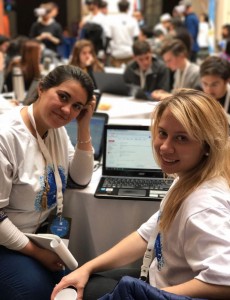Report prepared by the Healthy Latin American Coalition (CLAS) was presented in the framework of a public consultation opened by the Special Rapporteurship on Economic, Social, Cultural and Environmental Rights (REDESCA) of the Inter-American Commission on Human Rights (CIDH), with the to prepare a thematic report on inter-American standards in the area of business and human rights.
“Below, we offer a google translate version of the original article in Spanish. This translation may not be accurate but serves as a general presentation of the article. For more accurate information, please switch to the Spanish version of the website. In addition, feel free to directly contact in English the person mentioned at the bottom of this article with regards to this topic”.
The growing number of cases of human rights abuses and violations committed by companies has led to the treatment of the problem by the international community for some years now. In this context and within the framework of the inter-American system, the IACHR considered gathering information from different interested parties for the purpose of preparing a report that considers the regional reality, and that analyzes and systematizes the inter-American obligations and standards, in order to finally make recommendations on the matter.
Report presented by CLAS, a network that groups around 300 organizations in Latin America of which FUNDEPS is a part, focuses specifically on analyzing the link between companies and chronic noncommunicable diseases (NCDs).
Thus, first, the report provides information on the impact of these diseases in the region, with special mention to the involvement of vulnerable groups. Secondly, the power of influence of companies in the process of formulation of norms and public policies is analyzed, as an obstacle when adopting, executing and advancing in health policies to prevent and reduce the impact of chronic noncommunicable diseases. . In this regard, the cases of the tobacco industry, the food industry and the alcoholic beverage industry are cited as examples.
The document also warns that the current regulations and action plans sanctioned by governments focus on the prevention of the risk factors of these diseases, without including a more general perspective on human rights and companies. It observes that only some countries have made slight progress in this regard, despite the fact that international evidence shows that the most effective measures to reduce the consumption of unhealthy products are those that control the actions of the companies that manufacture and promote these products; especially in relation to marketing and promotion strategies.
Beyond the efforts of Latin American governments to move forward with legislation for the prevention of NCDs, the intervention of companies in the design and implementation of public policies, as well as the lobby of the industry, constitute a great obstacle to effective implementation of norms that prevent the population from the health consequences of consuming unhealthy products.
Currently, at the international level, there are non-binding instruments and mechanisms that aim to protect human rights from the irresponsible actions of companies. These include: the United Nations (UN) Guiding Principles on Business and Human Rights, the OECD guidelines and the UN Working Group on Business and Human Rights. Similarly, the work of the IACHR has focused on the search for the prevalence of fundamental rights against the power of corporations; and that is why this thematic report takes on a fundamental character. In this context, also, in the last three years, at the initiative of some States, it has begun to debate the possibility of having an international treaty that effectively forces companies to comply with and guarantee respect for human rights. We believe that an instrument with these characteristics would reinforce the existing regulations, while at the same time ending the abuses perpetrated.
More information
Contact
Agustina Mozzoni, <agustinamozzoni@fundeps.org>

